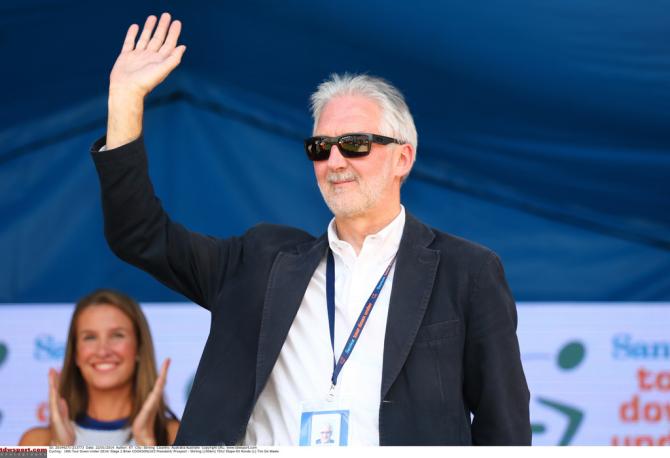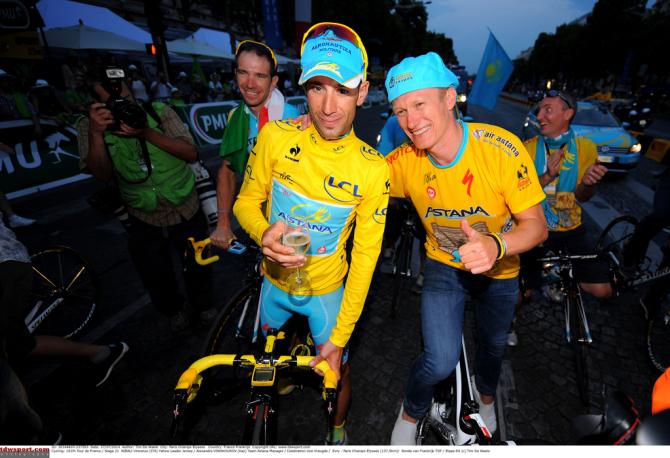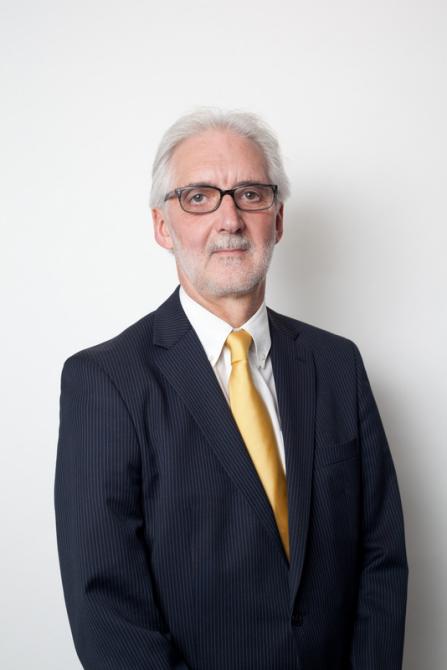Cookson open to shortening the Grand Tours
UCI president trying to honour heritage and expansion




Brian Cookson has said that he would consider shortening the three Grand Tours in an attempt to declutter the cycling calendar.
The UCI president was speaking to the media in Spain after presenting the awards for the 2014 UCI WorldTour rider, team and nation at an event in Madrid on Monday.
"Nothing is untouchable," he Spanish newspaper AS reported him as saying. "We want to plan for a better sport, in that the best riders compete in the best races. With the current structure of three Grand Tours of three weeks it is impossible. We have too many races and days of competition in a lengthy calendar, which requires a significant financial strain. The sport of cycling isn't simple. We are looking for adequate solutions."
Cookson was responding to worries that Spain's own Grand Tour, the Vuelta a España, could be cut from three to two weeks in the future. Cycling is due to undergo a massive overhaul in 2017 with a complete structural change, and re-organisation of races. The plan is to ensure that there are no two major races contested simultaneously, which currently happens at several points during the season with events such as the Criterium du Dauphiné and the Tour de Suisse, Paris-Nice and Tirreno-Adriatico.
There has been a tug of war between teams and race organisers over certain points in the proposed reforms and it is believed that a meeting took place last Thursday to iron out those issues. Cookson explains that the reforms are a balancing act as they try to combine heritage with global expansion.
"We have discussed for a long time who will take the biggest part of the pie, and what we have to do is make a bigger pie for everyone to take a larger piece," he is reported as saying in an interview with the Spanish Ciclo21 website. “"The important thing is that teams are stronger, the races are bigger, etc. But as part of this we are obliged to look elsewhere. We need to respect the heritage of the sport, which is in Europe, but we must seek new opportunities for teams and riders."
Anti-doping and Astana
The latest race content, interviews, features, reviews and expert buying guides, direct to your inbox!
During the interviews Cookson was also probed about a number of anti-doping issues. From the start of 2015, high profile doping cases will no longer go before the national body of the offending rider. Instead, they will be presided over by a UCI independent body. The change has been brought in to "avoid conflicts and take unnecessary pressure off countries," Cookson explained to AS.
Cycling has seen a number of high profile doping cases recently, namely the positive tests at Astana. Last month, the UCI requested that the Licence Commission look into Astana's WorldTour licence.
Astana are one of several teams at the top of cycling that has also been criticised for having convicted dopers at the helm. The results of the Cycling Independent Reform Commission are expected at the beginning of next year. Cookson wouldn't be drawn on Astana's licence prospects but explained that changes effected from the commission’s report could see regulations introduced to control who can be involved in a team.
"One of the things we want to do with them [the Commission] is to study a better process for deciding who can be involved in a team and under what premise. In English there is a phrase that would apply to this case: who is 'fit and proper' to be linked to a team," Cookson told Ciclo21.
"We have a rule that if you had a doping ban of two years cannot be involved in a team. We started with it in 2011, but legal advisers told us it could not be retroactive, so this is one of those issues that we must study in depth. It's not easy. It’s not a question of 'cojones'. It's a question of doing it well and, above all, legally because otherwise we spend millions in lawsuits and lawyers and maybe lose."
Certain European nations are taking the anti-doping battle into their own hands. For a long time, doping has been a criminal offence in France and Italy. Now Germany is set to bring in a similar rule that could see offenders be sent to prison for up to 10 years - depending on the nature of the offence. Cookson is in favour of the plan, but believes that there should be more interaction between governments and the World Anti-Doping Agency (WADA).
"If we can get various governments consider doping in sport a criminal offense, it would be very very happy with it," he said. "For doping there must exist other issues such as medical, distribution networks, money laundering ... in short, many stakeholders. I would love to see more collaboration between WADA and the governments of the countries."
Born in Ireland to a cycling family and later moved to the Isle of Man, so there was no surprise when I got into the sport. Studied sports journalism at university before going on to do a Masters in sports broadcast. After university I spent three months interning at Eurosport, where I covered the Tour de France. In 2012 I started at Procycling Magazine, before becoming the deputy editor of Procycling Week. I then joined Cyclingnews, in December 2013.